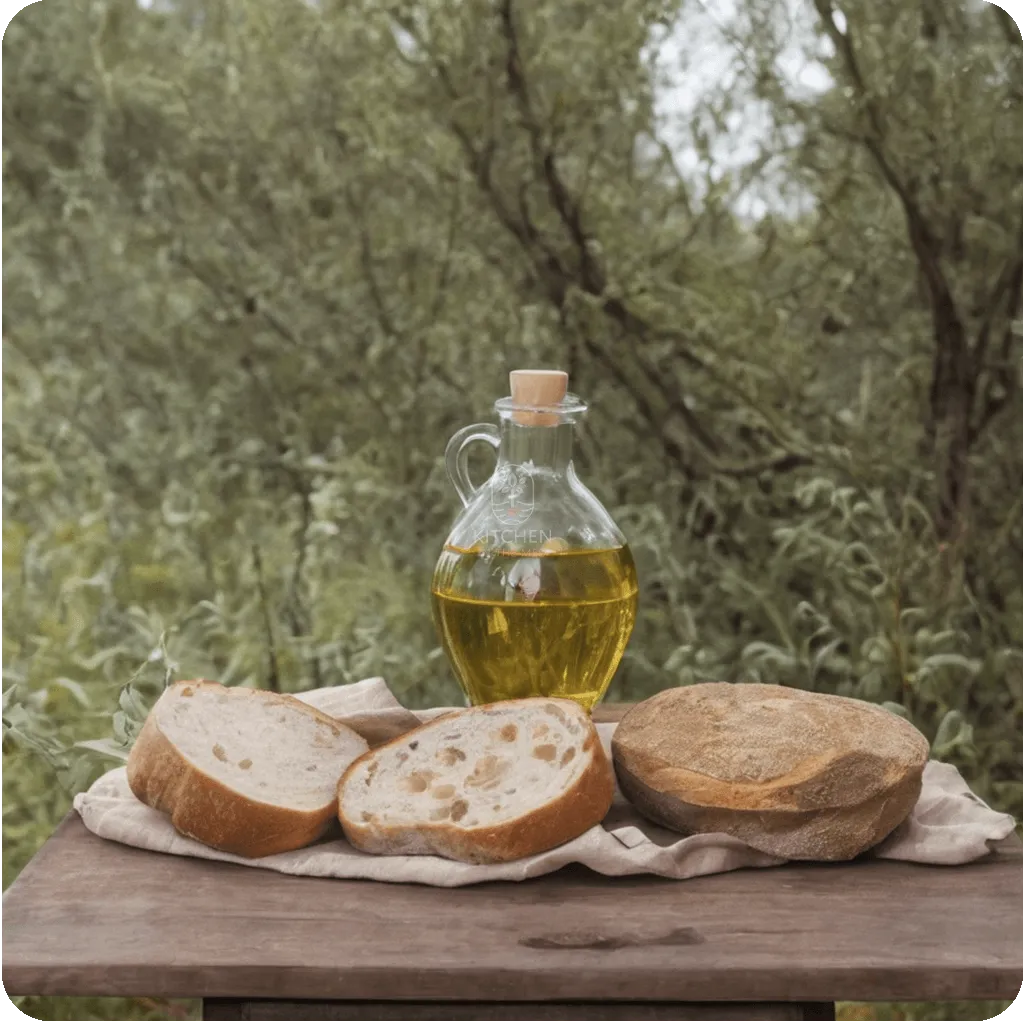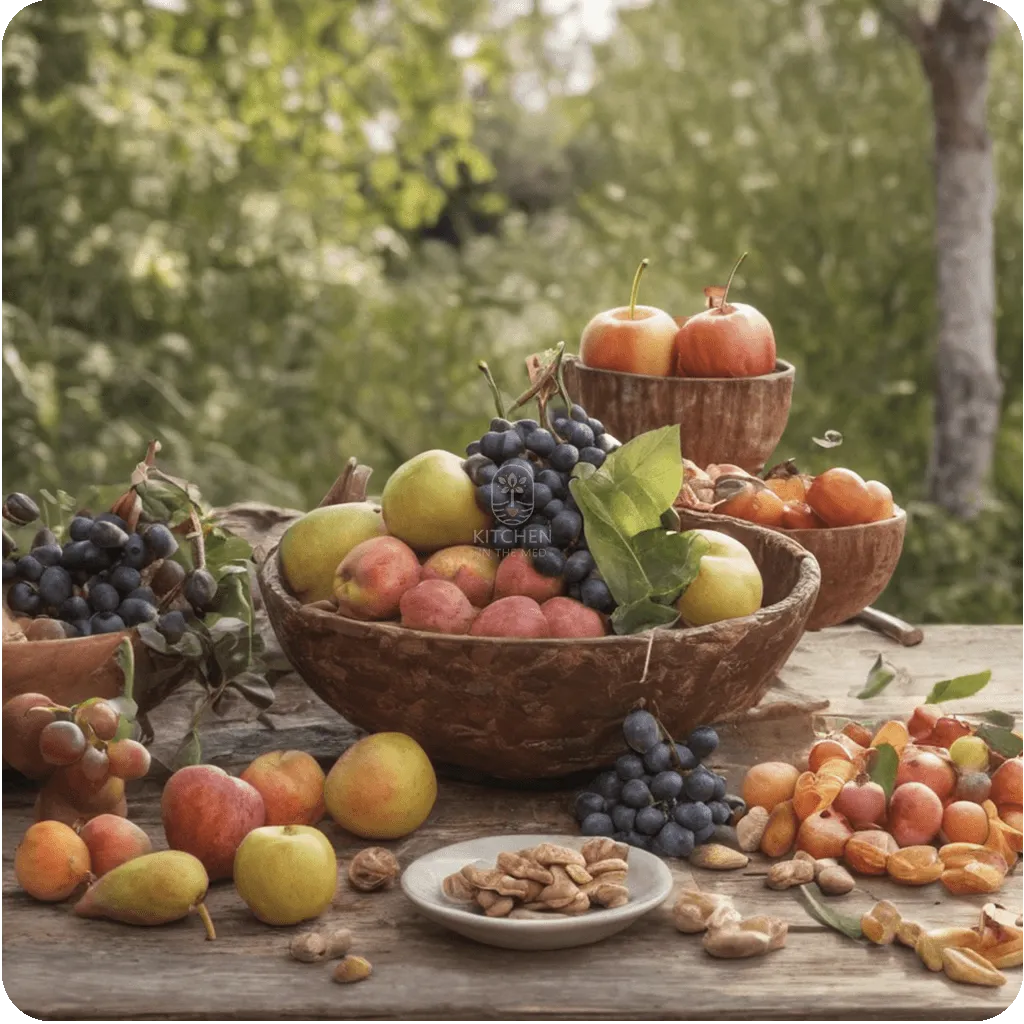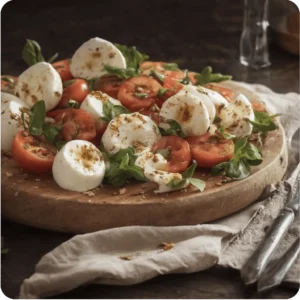Picture this: A world-famous chef, a bustling kitchen, and a bowl of olives waiting to spill its secrets. Surprised? You should be. For years, chefs have stumbled upon the Mediterranean’s health secrets, and it’s not just the olive oil talking.
Misconceptions fly around like dough in a pizza parlor—“Can it really be healthy if it tastes this good?” Let’s dive into the real story backed by data and reveal how this vibrant cuisine hides a handful of health tricks up its sleeve.
Mediterranean vegetables drawing
Kitchen in the Med
Share this article
The Olive Oil Revelation
Olive oil might be the biggest celebrity in the Mediterranean diet entourage, but let’s skip the spotlight and see what’s behind the scenes. Rich in monounsaturated fats, it was once just a pantry staple until chefs started playing around with flavors.
Here’s the kicker: Studies have linked its consumption to reduced risks of heart disease. Who knew sautéing veggies could keep hearts happy, too?
The versatility of this liquid gold was not orchestrated by nutritionists but by cooks experimenting in their kitchens. And voila—a health trend was born.

Olive oil and bread by kitchen in the med
A Symphony of Fresh Ingredients
The Mediterranean “medley” is a symphony played by nature’s finest orchestra—tomatoes, garlic, basil, and more. But these seemingly simple veggies were not just chosen for taste; they pack more antioxidants than a superfood smoothie!
Recent research suggests that the high consumption of these plant-based foods is linked to lower cancer rates. So, when chefs toss them into a skillet, it is not just for the aroma—it’s a health strategy in disguise.
Chefs from the Med region have been using fresh, local produce long before it became stylish or Netflix-documentary worthy. Talk about being ahead of the curve!
The Bread and Fish Affair
Bread and fish might sound like an unusual couple, but in Mediterranean cuisine, they are a match made in heaven—or perhaps, in the sea. Chefs have been pairing these two without realizing they are helping us swim toward longevity.
Rich in omega-3 fatty acids, fish offers protective benefits to the brain and heart, while whole grains in bread keep glucose levels steady.
These pairings were born from necessity and natural abundance, not a nutritionist’s manual. Yet, here we are—benefiting from their nutritious chemistry.
The Cheese Conundrum
Cheese: glorious, melty, and repeatedly vilified in diets around the world. Yet, Mediterranean cheese stays the comeback kid, waving its flag as a source of calcium and probiotics.
Greece, let’s hear it! Countries in the Mediterranean have lower rates of osteoporosis despite high cheese consumption. A paradox? Or just good cheese?
It turns out that moderate consumption combined with active lifestyles makes this ‘indulgence’ part of the equation for a balanced diet.
Wine, Dine, and Why Not?
The Mediterranean way endorses a glass of wine not just as dinner’s companion but as part of life’s everyday joys. It’s a tradition that’s survived millennia because science says, ‘Cheers!’
Red wine is rich in polyphenols, believed to enhance heart health. Who needs an apple a day when a glass of red keeps the cardiologist away?
Yet, moderation is key, and Mediterranean cultures often enjoy wine with meals in social settings, intertwining enjoyment with a mindful balance.

Wine glasses in the garden by kitchen in the med
Why Regional Cheeses Are Different
Though they say all cheeses are created equal, the reality is far more flavorful. Mediterranean cheese promises quality over quantity, crafted to be savored.
Rich in A2 protein, it’s easier to digest. Perhaps that’s the reason it pairs so well with sunny Greek afternoons or Italian villa vistas.
Originally, these cheeses were made to last under the region’s climate, adding another health bonus to their profile.
Unique Cooking Methods That Enhance Nutrients
Steaming, grilling, and sautéeing—the Mediterranean way is nothing if not simple, allowing ingredients to shine in their nutrient-dense glory.
Take grilled veggies: Beyond the char marks, the method champions preserving antioxidants. Who knew cooking could be such a subtle form of health chemistry?
The focus is less on drowning ingredients in heavy sauces, and more on letting natural flavors and nutrients sing. This is one time where less proves genuinely more.
Lifestyle Choices: Beyond the Kitchen
While food is the star player, the Mediterranean way of life complements it: think social meals, slow eating, and savoring each bite.
This lifestyle is associated with lower stress levels and a mindful approach to well-being. It is as if they have bottled time, along with wine.
The kitchen might churn out the diet, but the table introduces a way to integrate mindfulness into meals.
Fruits and Nuts: Small Packages, Big Benefits

Fruits and Nuts by Kitchen in the Med
In the Mediterranean diet, fruits and nuts don’t just hang around as sidekicks; they pack serious health punches in every bite.
Rich in fiber and healthy fats, nuts have been shown to reduce cholesterol levels. Meanwhile, fruits, particularly berries, are antioxidant powerhouses.
Cuisine snack rituals involve a handful of nuts or a vibrant fruit salad. Little indulgences, great returns!
Sweets with a Subtle Twist
When it comes to dessert, Mediterranean cultures are playful, opting for sweets that favor moderation over indulgence.
Date and honey pastries present natural sugars paired with nuts, offering a healthier alternative.
So, when chefs break out bosses of baklava, it’s the clever balance of sweetness that delights guests and health experts alike.
The Gift of Sea Greens
Seafood comes with an unexpected accessory: sea greens. Often featured in Mediterranean dishes, they are full of essential nutrients.
Studies indicate impressive levels of iodine and trace elements, crucial for metabolism. Simple garnishes or salads effortlessly incorporate them.
Since chefs indulged in coastal harvests, these greens have been sneaking onto plates, leaving flavors as bold as their health benefits.

Mediterranean Vegetables by Kitchen in the Med
Culinary Wisdom Passed Down Generations
The Mediterranean diet’s true secrets are perhaps stored in the ways recipes are passed down like valuable heirlooms.
This long legacy emphasizes simple ingredients seasoned by time and tradition rather than exotic or modern interventions.
Current data only supports what grandmothers already knew—homemade meals foster better health outcomes.
Community Clinics with Cuisine Influence
The influence of Mediterranean cuisine stretches beyond diets onto clinics, where many health improvements can be traced back to dietary changes.
Research showcases that Mediterranean-style eating is tied to lower rates of metabolic syndrome. This culinary influence aids doctors worldwide.
It’s the unwritten prescription found in many Mediterranean kitchens that affects not only individuals but entire communities.

The Mediterranean diet is still number 1 worldwide!
Setting New Trends by Looking Back
What if the secret to healthy living is not innovation but rediscovery? Mediterranean cuisine’s rise in popularity is not new; it’s a revival.
Trendy kitchens now mimic these age-old practices. From conservancy to creativity, the Mediterranean legacy provides a recipe for robust health.
Next time you relish Mediterranean meals, remember—they’re not just delicious; they’re a dish of history, climate, and wellness combined.
Embrace the Mediterranean Experience
To master Mediterranean health secrets, you don’t need to sail the Aegean or charm Italian nonnas for their coveted recipes. Start small—infuse daily meals with olive oil, invite friends to dine, and never shy away from adding color to your plate.
Real trends aren’t discovered in modern labs but in kitchens aged with patina. So cook like a Mediterranean! Your heart—and tastebuds—will thank you.
Main Sources I used in This Article
Estruch et al., 2013 –
Bach-Faig et al., 2011 –
Grosso et al., 2018 –
Mulero et al., 2011 –
Manios et al., 2008 –
Kris-Etherton et al., 2001 –
Triggs, 2008 –
“Date palm products” published by Food and Agriculture Organization of the United Nations
Tognon et al., 2012 –
“Date palm products” published by Food and Agriculture Organization of the United Nations
Share this article
I am extremely impressed with your writing abilities and also with the format for your weblog.
Is that this a paid theme or did you customize it your
self? Either way stay up the nice quality writing, it is rare
to peer a nice weblog like this one these days.
Thank you.
🙂